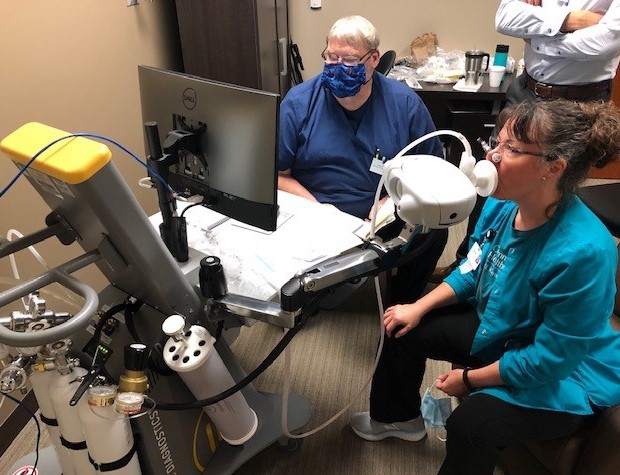-
-
5Ob, Alafe Junction, Along Idanre Road, Oke Aro Street,
Akure, Ondo State, Nigeria

Pulmonary Function Tests (PFTs) are a group of non-invasive tests that measure how well the lungs are working. These tests assess lung volume, capacity, rates of flow, and gas exchange. They are essential in diagnosing and monitoring respiratory conditions like asthma, chronic obstructive pulmonary disease (COPD), and restrictive lung diseases. PFTs help healthcare providers determine the severity of lung dysfunction and the effectiveness of treatment strategies.
Pulmonary function tests are essential diagnostic tools in respiratory medicine. They provide critical insights into lung function, helping to diagnose a variety of pulmonary conditions, assess disease severity, and monitor treatment response. By performing PFTs, healthcare providers can offer tailored treatment plans that optimize respiratory health, improve patient outcomes, and enhance the quality of life for individuals with chronic lung diseases.
PFTs are crucial in detecting lung diseases early, even before symptoms become apparent. This early detection allows for timely intervention and management, which can improve the quality of life and slow disease progression. In patients with chronic lung diseases, PFTs provide valuable information about disease progression and response to treatment. Regular monitoring helps clinicians adjust treatment plans to maintain optimal lung function.